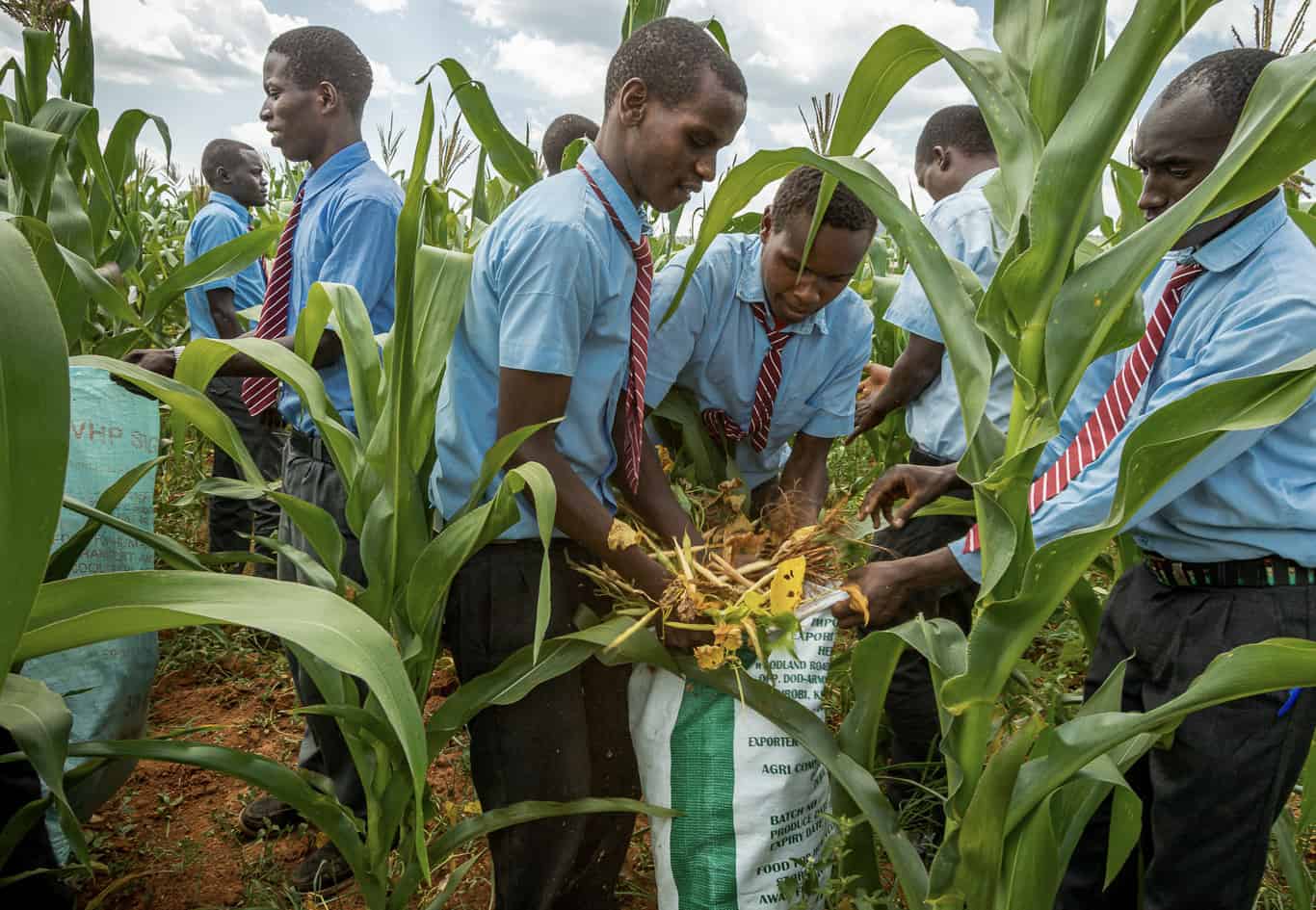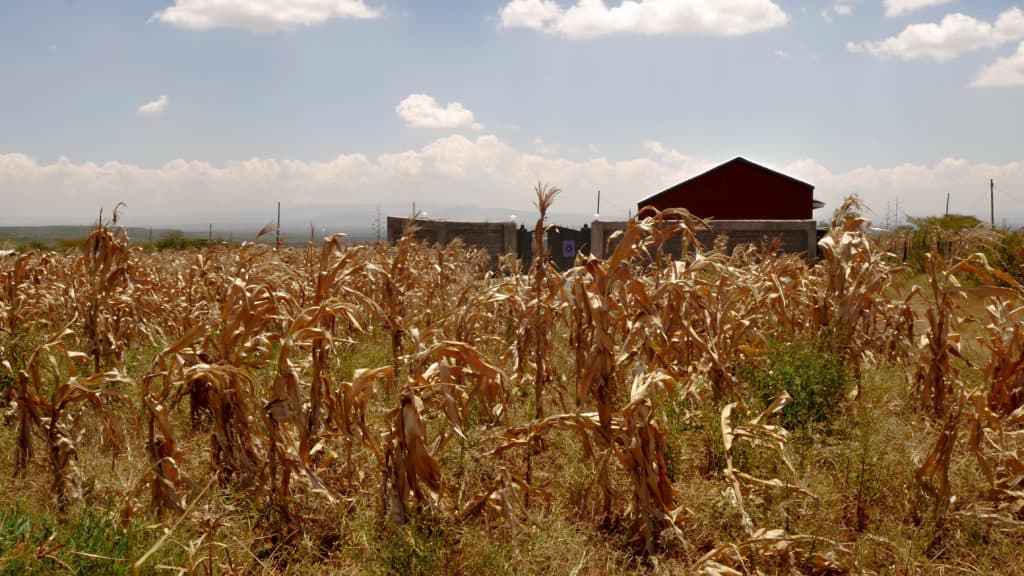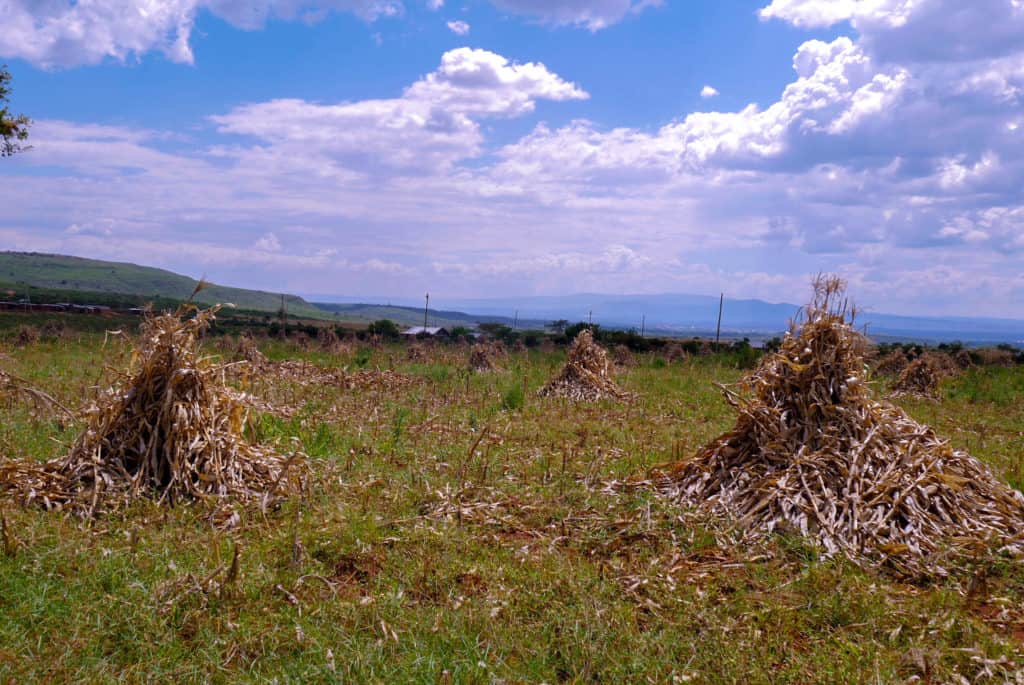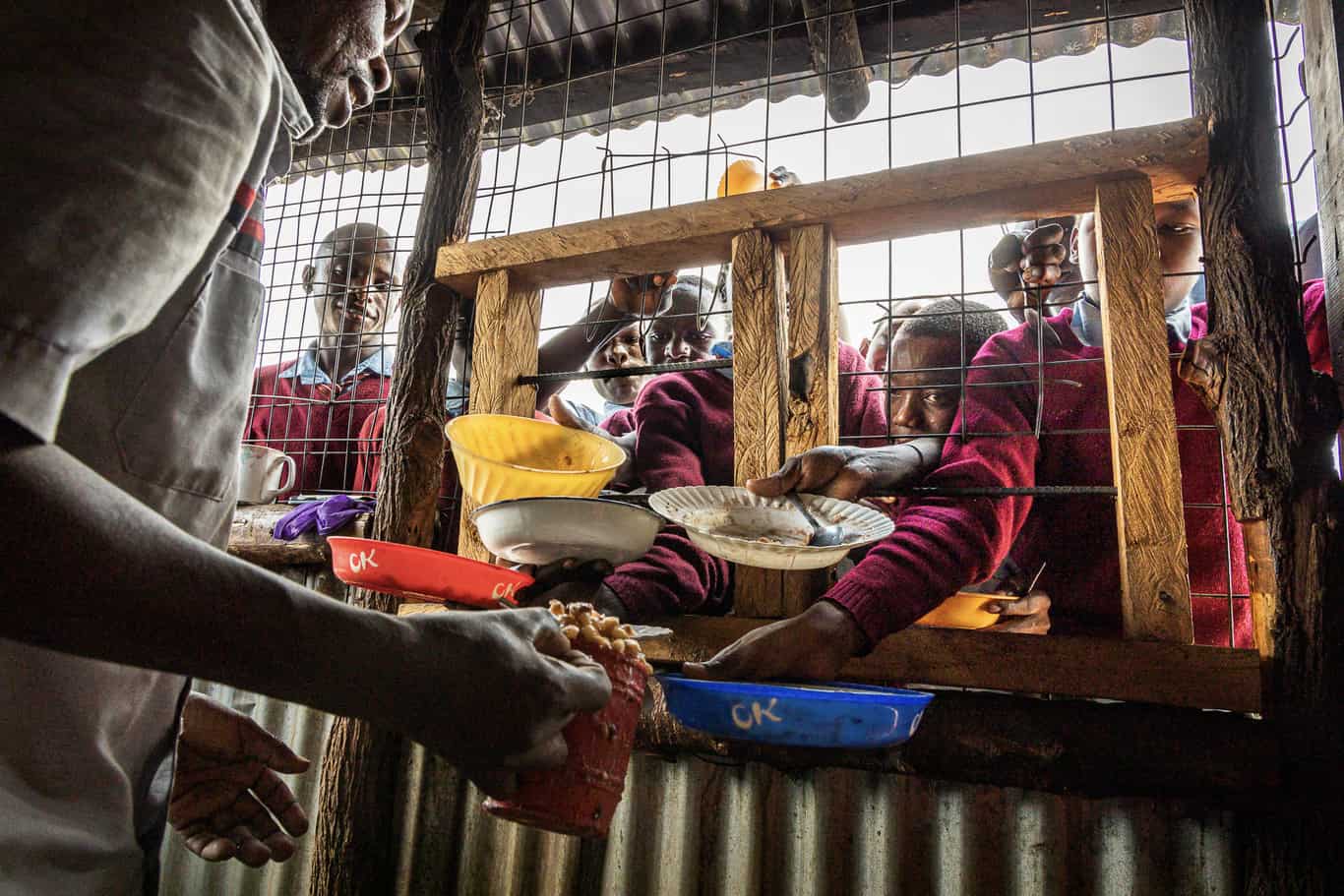This year, we launched sustainable school feeding and nutrition programs in our schools.
Our aim is to provide our students with at least one healthy meal every day throughout the school year.
Our hope is that this new program will help to bridge the hunger gap for children whose families, despite their best efforts, are not always able to find the money needed to feed their children three meals a day. Often this means a child will go to school with no food for lunch.
With a nutritious daily meal in their tummies, a child’s ability to focus and be ready to learn is improved. A guaranteed daily meal also serves as an incentive for impoverished parents or caregivers to send their children to school. As a result, feeding programs often stimulate increased enrolment, reduces absenteeism and, when a child stays in school, increases their ability to generate future income, build a livelihood and more fully participate in their families and communities.
Students at Village Impact schools now enjoy nutritious daily meals
What an incredible opportunity to engage our students and our communities in growing our own food!

And that’s just what we did: planting and harvesting are done communally.
Some parents help prepare land, plant and tend the crops. Students are tasked with the responsibility of harvesting the yield. A good harvest is dependent on proper planting, weeding and harvesting, but-—as we have quickly learned—preservation is where the yield is mostly lost.


Our communities mainly consist of farmer families, and due to the lack of adequate preservation methods, families are forced to sell their yield early and at a cheap price. This has led to exploitation from brokers, who greedily enjoy all the spoils from the hard work and dedication of the farmers. As crops are sold early, there are often concerns about running out of food come mid-year.
Highlights of sustainable farming practices at our schools
San Marico Primary School, which opened last year, harvested eight bags of beans from school garden cultivated last term. They also expect to harvest forty bags of maize which would aid in the school feeding program next term. Although they are very pleased with their yields this year, the school’s rapid growth from 350 to 450 students in less than a year has caused some concern. However, the Head Teacher is optimistic that this harvest will be able to adequate food for the school for at least two terms next year.
The Principal at Bright Hope High School, who has been efficiently running the feeding program over the past three years, says dismal rains are likely to affect the school’s yield for this year. Most farmers had anticipated it would rain in February, only to experience delays till the beginning of May. Last year, Bright Hope harvested thirty-eight bags of maize and four bags of beans that provided well for the students.
Adjacent to Bright Hope is Sinendet Primary School, where they are expecting twenty bags of maize come the end of this season.
Kimugul Primary School is likely to harvest twenty bags of maize and four bags of beans from their school farm.
Amani Kuresoi Primary School planted cow pies and potatoes on two acres of their school’s garden. Due to the nature of their yield, they may be required to sell some of the crop yields now and buy additional food later in the year.
Shalom Primary School got support from our partner organization Volunteer International Community Development Africa (VICDA) in order to spearhead the cultivation of a five-acre piece of land adjacent to the school. The Head Teacher anticipates that the maize and beans harvested will be enough to sustain the school for the better part of next year.
Springs High School has also cultivated two acres that will provide for 360 students next year.

It is true that “one reaps what one sows,” but in the case of our students, what we are reaping does so much more than simply stop rumbling stomachs…
We are feeding our future, and our future is very bright!
